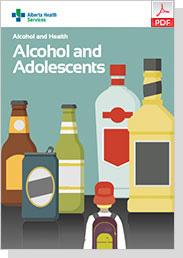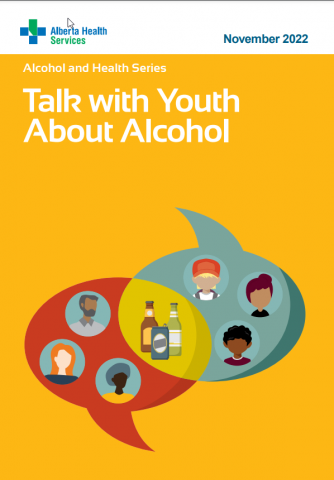Start the responsible drinking conversation and breakthrough to your teen.
Parents often think they’re getting through to their teens when they talk about responsible drinking, but most times teens are not getting the message. Getting the message through is important, there are many risks involved with underage drinking, besides just the legal repercussions. It’s our goal to ensure teens have all the facts to make smart and informed choices.
Every teen is different. Take our quiz and get tips that are specific to your unique teen.
If you are thinking about talking to your children about alcohol, good for you. Children can have no better help than a parent who thinks ahead, takes the time to be informed and uses their knowledge to help their children make informed choices. When alcohol does come into their lives, children are then prepared to make the healthy choices.
Clear rules are helpful, but good communication in which your child feels comfortable and well understood is equally important.
How to talk to your kids about drinking
Youth say that their parents and family members are a big influence in significant life decisions. Start the conversation with your kids and help them make informed decisions.
For example, start with some celebrity gossip. Celebrities are a gold mine for terrible life choices. You’re talking about it already, so discuss how your child feels when their idols abuse alcohol or drugs.
Whatever their age, it’s never too early or too late to start talking. We know that talking about alcohol and drinking is sometimes not easy but getting the conversation started is the first step.
If you’re not talking to your kids about alcohol who is?
Here are some ways you can prepare.
Tab panel
Preschoolers (age 4 and under)
Kids this age absorb a lot of new information as they watch the world around them (sometimes more than we want them to!). Spend quality time with your preschooler to create an environment where your child will feel comfortable coming to you to ask questions or discuss their feelings, ideas and opinions. If you set a good example for your child from an early age, the more likely they are to drink responsibly in the future.
Tab panel
School-Aged Children (ages 5-9)
At this age, children learn about alcohol from other children and from TV, movies and what they see in real life. Talk to them about what they’ve seen and heard and ask them to think critically. Children this age also often enjoy learning about how the body works so try teaching them about the effects of alcohol on the human body.
Don’t be scary, be factual. Explain to your child that even though there can be negative consequences to consuming alcohol; drinking responsibly is not dangerous for adults. You don’t want your child to think you’re doing something wrong or to worry about your health. The important thing for your child to understand is that they shouldn’t drink and adults who choose to drink should do so responsibly.
Tab panel
Preteens (ages 10-12)
Preteens are doing more things on their own, including choosing their own friends who will have influence with them.
- Know your child’s friends and meet their parents when possible
- Be aware of where your child is and who they’re with
- Set clear house rules regarding alcohol and drinking, whether in the home or outside of it
At this age, children begin to understand the concept of actions and consequences. Discuss things like:
- Laws regarding alcohol – age limits, misuse, impaired driving
- Responsible drinking – including parental expectations and moderation
- Family history if it involves alcoholism
- More detailed effects of alcohol use on the body
Tab panel
Teens (ages 13-17)
Opportunities to try alcohol are increasingly present as teens get older. Stay involved in your child’s life and be aware of who they are with and what they are doing.
- Re-establish house rules and stick to them
- Have family dinners that encourage open conversation
- Answer your teen’s questions honestly
When your teen wants to invite friends over:
- Be clear that house rules extend to guests
- Confirm who they plan to invite and tell them to stick to the agreed-upon guest list
- Encourage them to invite a responsible friend to act as the party’s “co-host” to provide support if needed
- Plan activities beforehand. Ask guests not to bring alcohol
- Serve food and non-alcoholic beverages
- Let your child know they can contact you for help if necessary
- Have your teen keep you informed of their plans
- Check in regularly, but not obsessively
Tab panel
18+
Young adults are more likely than older adults to consume alcohol in risky or dangerous ways, without considering short- or long-term consequences. Even though the decision to drink alcohol is ultimately theirs when they turn 18, you are still a big influence in their life.
- Encourage your child to consume alcohol responsibly
- Be involved in their life, even if they aren’t at home
- Encourage them to watch out for their friends who have been drinking
- Encourage your child to plan ahead if drinking. Suggest a designated driver, taking a taxi or bus, or sleeping at a friend’s. Never tolerate impaired driving
- Remind them to eat before they go out and while they’re drinking
- Encourage them to pace themselves, to be aware of their limits, and to keep track of how many drinks they consume
- Tell them to never leave their drinks unattended
- Remind them to keep their cell phones fully charged in case they need to call or text you
- Avoid pre-event drinking
Start the conversation
The more you talk about alcohol, the more your child will understand the effects of their decisions and will be comfortable talking about drinking with you. Try to keep discussions in the present tense and talk about short-term consequences and encourage your child to share with you what they already know, or think they know, about alcohol. Don’t just talk about the negative physical effects – talk about emotional and social effects of alcohol consumption and if you’re comfortable maybe even share some (horror) stories of your own.
It might be awkward at first but you can power through! The best way is to approach it like a conversation, not a lecture. Try to let it come up organically and seize opportunities when you can, such as:
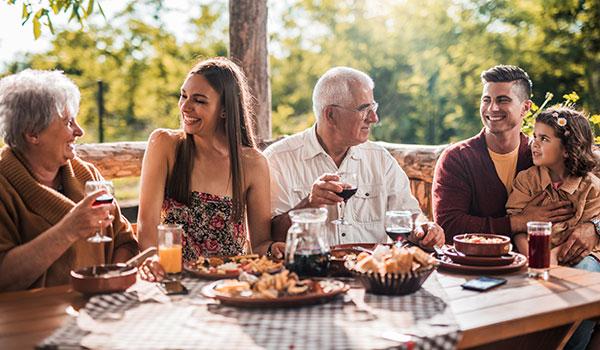
At the dinner table
You’re all gathered around eating and drinking, so why not talk about it? This is a good place to chat about the importance of eating while drinking and why that glass of wine won’t get you “wasted” because you’re sipping slowly and eating at the same time.
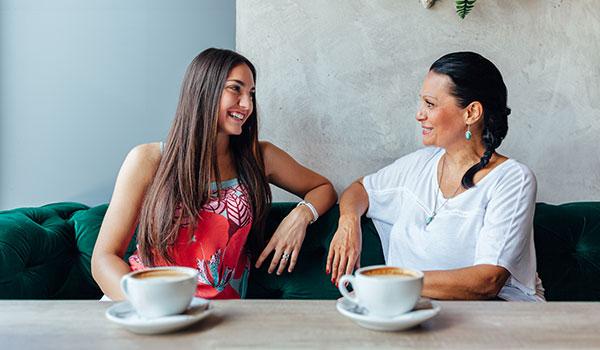
At a restaurant
Again, you’re gathered around eating and drinking, so opportunity has risen. This time though, you drove here and you’re drinking a beer. Take the time to explain that this isn’t irresponsible as long as you’re within your limits and respecting the law.
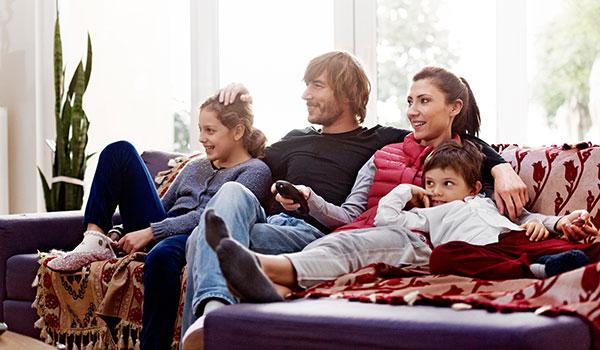
Watching entertainment
Drinking in TV shows and movies is common and typically ends in the characters making bad choices. Point out that alcohol affects judgement and behaviour. So now the cool teen heartthrob has lost his one true love! All because of the booze and maybe even a little peer pressure.
